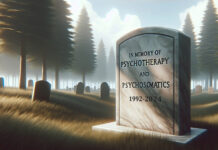“Tetris for Trauma” Viral Twitter Thread: A Master Class in Misleading Psych Research
A TV writer claims that research shows that Tetris is “literally a trauma first aid kit.” Her tweets sound scientific, but the research behind it is unconvincing.
Summing up the STAR*D Scandal: The Public was Betrayed, Millions were Harmed, and the...
American psychiatry, the NIMH, the larger medical community, and mainstream media have betrayed the American public by failing to make this scandal known.
NIMH’s It-girls: The Genain Quadruplets and the Whiteness of Psychiatry
The poster-children of psychiatric genetics, who endured abuse throughout their lives, were also the product of a racist culture.
Heritability Explains Less About Mental Disorders Than You Think
The focus on diseased brains and genes obscures the significance of social and environmental influences.
Psychiatry, Fraud, and the Case for a Class-Action Lawsuit
For decades, psychiatry committed medical fraud when it told the public that antidepressants fixed a chemical imbalance in the brain.
The Editorial Demise of Psychotherapy and Psychosomatics Is Bad News For Us All
Karger’s decision to replace the editorial leadership without consultation is extraordinary, abruptly ending decades of success and accumulated expertise.
Ending The Silence Around Psychedelic Therapy Abuse
All the new hype about miracle psychedelic treatments as the next wave of cures for mental disorders leaves out the risk of therapy abuse.
Searching for the “Psychiatric Yeti”: Schizophrenia Is Not Genetic
After decades of study, billions of dollars spent, and thousands of studies conducted, the failure to identify any genes for schizophrenia should definitively put to rest the notion that schizophrenia is a genetic disorder, according to E. Fuller Torrey.
Why Failed Psychiatry Lives On: Its Industrial Complex, Politics, & Technology Worship
By embracing the widely popular technology-worship “religion,” psychiatry is permitted to ignore the reality that its repeated failures are evidence that its fundamental paradigm is misguided.
Thomas Insel Makes A Case for Abolishing Psychiatry
In his new book, former NIMH director Thomas Insel, while exploring the causes of poor mental health outcomes in the United States, omits any mention of NIMH studies that tell of how the drugs worsen long-term outcomes.
Thomas Szasz Versus the Mental Health Movement
Unbiased experts must examine the claims and research of psychiatry and issue a report as to whether psychiatry not only has a valid medical basis, but whether this basis justifies the widespread violation of medical ethics and the routine use of imprisonment and torture.
Psychiatric Detentions Rise 120% in First Year of 988
As contacts to the new 988 suicide hotline number have risen, so have call tracing and police interventions.
The Clinical, Social, and Cultural Harm of an Iatrogenic Psychiatry
Normal reactions transformed into illnesses, emotions stripped of meaning, & people deprived of their autonomous coping skills and supports.
Should Everyone Be in Therapy?
A new study finds that those with mild distress are three times as likely to feel worse after therapy than to receive some benefit.
Martin Harrow: The Galileo of Modern Psychiatry (1933 – 2023)
Harrow's research over the years told of how long-term antipsychotic use is associated with worse outcomes, even after controlling for psychosis severity.
Can Psychotherapy Promote Liberation? Addressing Power Dynamics in Clinical Practice
Just as it risks transmitting harmful narratives about pain and distress, psychotherapy might also subvert these very harms in pursuit of genuine healing and transformation.
Point/Counterpoint: What Is the Importance of Nassir Ghaemi’s Conclusion that Psychiatric Drugs Do Not...
A dialogue between Jim Phelps and Robert Whitaker about Nassir Ghaemi's latest article, which concluded that psychiatric drugs, except for lithium, do not provide a long-term benefit.
Do Critics of Biological Psychiatry Have an Alternative to a Life of “Whack-A-Mole”?
Psychiatry has simultaneously offered multiple biological theories of depression and its other disorders, but the theories that stick are those that are effective marketing devices for money-making drugs.
“Holy Shit!” Psychiatry’s Cognitive Dissonance on Display
Even those who would seek to reform the profession of psychiatry cannot confront the reality that exists in the research literature
Leading Psychiatrists Unwittingly Acknowledge Psychiatry Is a Religion, Not a Science
Leading figures in psychiatry acknowledge that DSM psychiatric diagnoses and the chemical imbalance theory of mental illness are not scientifically valid, but are useful fictions that help people manage their emotions and comply with their medication treatments.
Threatened for Telling the Truth: Polish Journalist Speaks Out
Now I’m under attack, with threats of violence flung at me alongside threats of lawsuits. And all because I shared the large body of peer-reviewed research that contradicts the mainstream assumptions of psychiatry.
The New York Times Is Now Engulfed in the STAR*D Scandal
The New York Times published yet again the fraudulent result from the STAR*D trial. Will the mainstream media ever tell of this scandal?
Lessons from a Global Psychiatric Conference: The Good, the Bad, and the Complicated
Has the global mental health movement truly reformed its tone-deaf universalist attitudes?
Inside a Forensic Psychiatry Unit: Here’s How to Survive
Sean Gunderson, who was detained by the criminal justice system for 17 years after receiving an NGRI verdict, documents the life of a forensic psychiatry inmate.
Breaking the Cycle: How I Overcame Intergenerational Trauma and Became a Peer Advocate
How did that young Puerto Rican girl who very much disliked seeing a therapist when locked up in the juvenile system end up working in the mental health field as an adult?

































